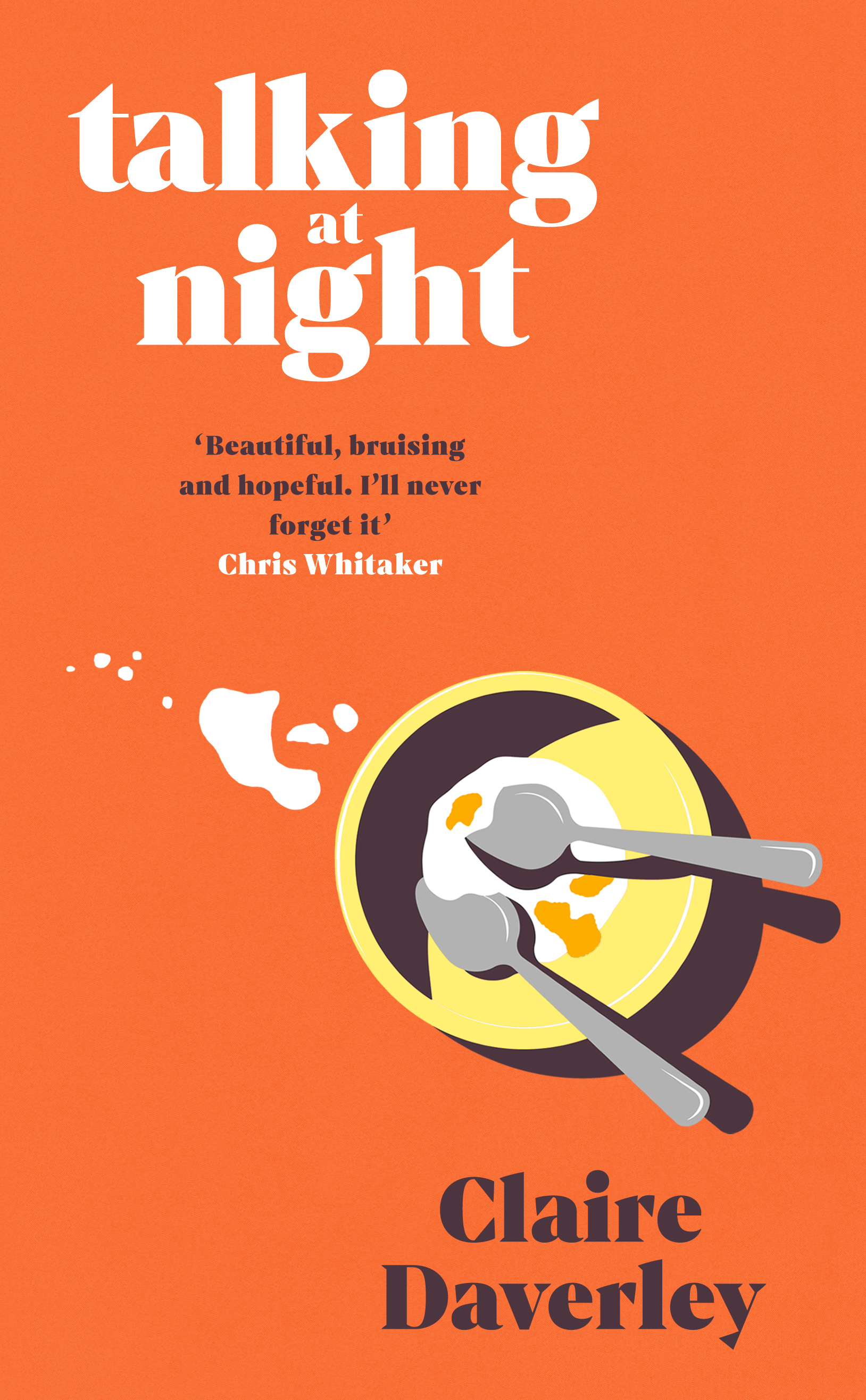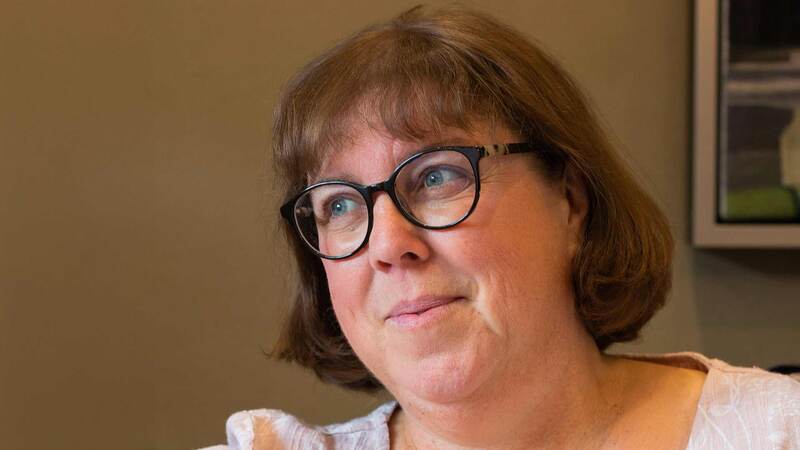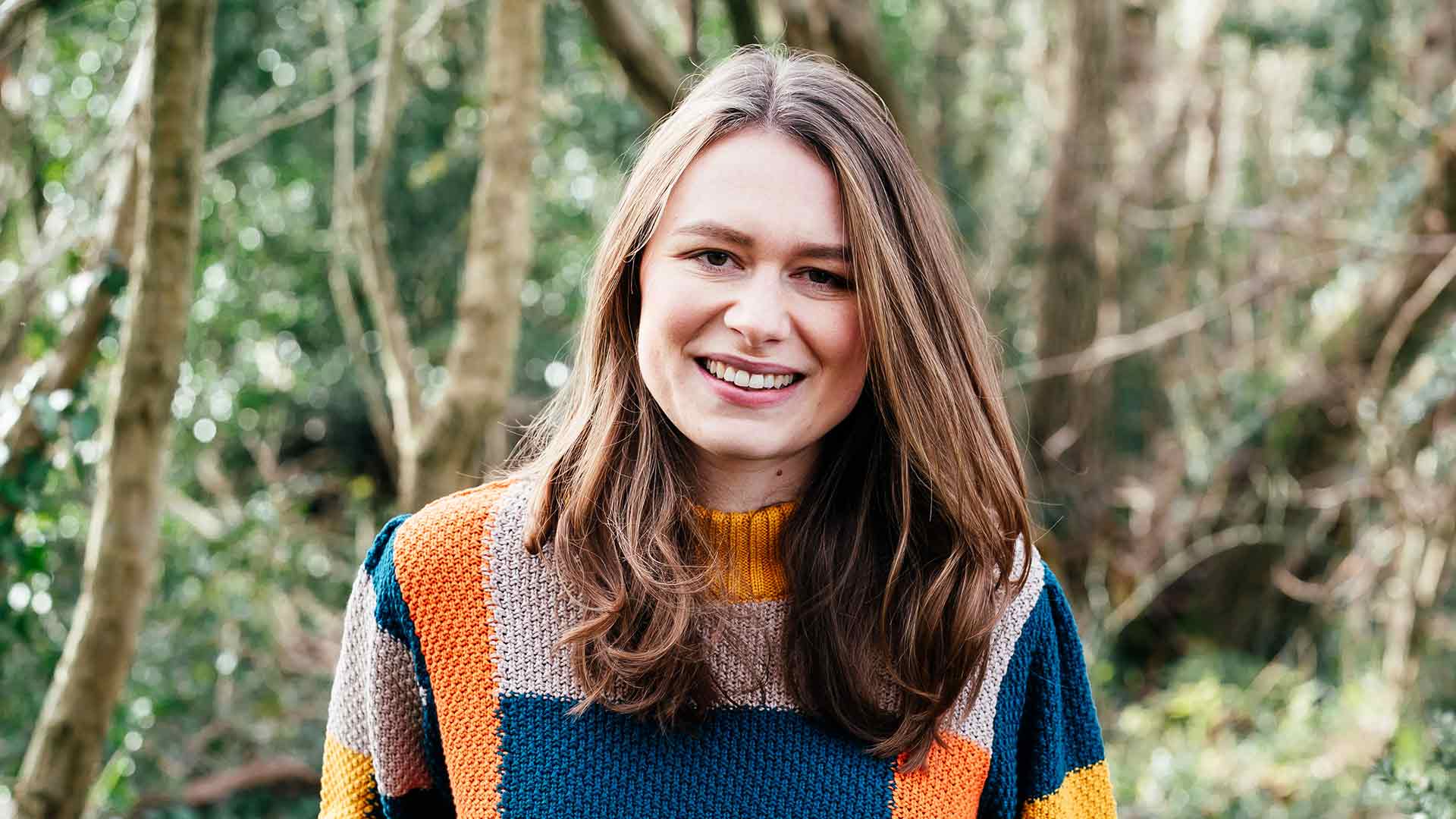You are viewing your 1 free article this month. Login to read more articles.
Claire Daverley on her début novel, a quiet tale of love and life
Not so much a love story as a life story, Claire Daverley‘s début novel strikes a fresh note.
"I was writing at the crack of dawn every morning while my husband was still asleep, before the world had woken up,” says Claire Daverley over a cup of Earl Grey tea when we meet in King’s Cross. We are in the same place where Daverley had her goodbye breakfast when she left her job in digital marketing at Penguin Random House. A place of endings and new beginnings, it seems.
Between mewling babies and a waiter with terrible handwriting, we discuss Daverley’s début Talking At Night, a decades-spanning tale of epic love wrapped in the lives of Rosie and Will. Rosie is the quintessential hard-working student who copes with stress and anxiety by “checking”, an early form of obsessive-compulsive disorder. Will is known as a rebel, with little interest in academics, battling the trauma of his mother’s abandonment.
They are opposites in every way yet one night, during their last year of secondary school, they talk and accidentally begin to fall in love. Their budding romance is cut short however when tragedy strikes on Will’s birthday. In the aftermath of his death, Rosie and Will move apart, taking different paths, and yet always coming back to each other.
Mental health is very nuanced. It ebbs and flows. It fluctuates and it can also be something that you live with and manage long term that doesn’t define you
It is a captivating read, tracing the intimacies of romantic and non-romantic relationships alongside life’s upheavals, captured through Daverley’s distinct style which casts the story in a stream of consciousness, dream-like prose. She attributes this style of narration to writing in “stolen time: I used to write on the train to and from work so there’s something about the rhythm of my writing when I’m always in motion”. This sense of the quotidian, interspersed with the “small joys”, bleeds through onto the page: “I wanted to write a novel about people and the things they say and don’t say and all the gaps in between.”
Talking At Night is not simply a love story, it is “a life story”. Through the decades, we follow Rosie and Will through university, marriage, divorce, work, travel, grief, illness and death; this is a story of living. Mental health is an important part of this tapestry, running as a continuous thread throughout. There is “still a really long way to go” with the conversation around mental health, says Daverley, who disagrees with how it is “either spotlit or exaggerated” in other books. Rather than write about mental health as a linear journey from diagnosis to cure, Daverley weaves it into the texture of Rosie and Will’s life as they struggle with depression, addiction and OCD. She continues: “Mental health is very nuanced. It ebbs and flows. It fluctuates and it can also be something that you live with and manage long term that doesn’t define you. I wanted it to be in the story in a way that wasn’t the focus.”
Although Daverley didn’t make “intense” character profiles, Rosie and Will have “percolated” in her mind for years. “I honestly just listened to them; they very much led the way.” She was careful not to present Rosie and Will through one prism, wary especially of making romance the defining feature of their identity: “They had to find out for themselves who they were, who they wanted.” Love is a wondrous part of life, but Talking At Night suggests it should not be the only part. It is also not the healer of all ills. Rosie and Will may reunite at the end of the novel but “it’s not one of those scenarios where everything is made right, and they walk off into the sunset and there’s no problem ever again. They still both have their flaws; there’s the mental health issues they are both working through that are in no way going to be over or cleaned up just because they decide to be together.”
I think it’s one of those things that is seen as very twee or tacky or frivolous. Not only in fiction or film, or in everyday conversation, there’s always this sense that you should feel embarrassed about talking about love
Rosie and Will are each other’s first loves, and first love has shaped Daverley’s life. “I come from a weird line of childhood loves,” she laughs, telling me her grandparents met when they were young and have been married for 65 years, her mum and dad met when they were teenagers and “never looked back”, while Daverley and her husband began dating when they were 16.
Love is not a subject with which any of us are unfamiliar; its starring role in literature, music, art and writing is beyond count, yet Daverley believes it is becoming taboo: “I think it’s one of those things that is seen as very twee or tacky or frivolous. Not only in fiction or film, or in everyday conversation, there’s always this sense that you should feel embarrassed about talking about love.” It may be “uncool to be sentimental”, but “I do feel passionately about love”, Daverley says. When I ask her what love is, she responds: “The great thing about love, or at least the complex, difficult, beautiful thing about love, is that it is very hard to define. I think people are always pursuing this idea of love being a perfect golden concept that happens and continues for evermore. I think the reality is that true love—it has the joy, that golden moment—[but] real love includes the messy, complicated highs and lows.” It is this messy, convoluted love which Talking At Night depicts. Rosie and Will may be each other’s first love but it takes a rather circuitous route.
Far from driving into the sunset, their relationship “takes work”, “they make mistakes, they do bad things, they let each other down, but they’re also there for each other”. Yet, love “is [also] a choice” and is the decision made at the end of the novel: “I know it seems like I didn’t choose you, ever, Rosie says, when all I wanted was to choose you.”
Extract
They talk until the early hours of the morning. Rosie has turned on the light above the oven, and it bathes the kitchen in gold, the underfloor heating warming the tiles, the slipperless soles of her feet.
They eat cornflakes with cold milk and she watches him dribble a spoonful down his chin, and this makes him seem less intimidating, especially when he fails to notice. She tells him, eventually, with a small laugh, and he wipes it away with the back of his hand, says that’s embarrassing, and when she asks him why he shrugs and grins, his canines speared and sharp-looking.
He doesn’t try small talk. Doesn’t ask her about school or subjects or being a twin. Her asks her, immediately, why she rarely sleeps, and this is what does it; this is what catches her, places him in her sphere in a way she wasn’t ready for.
It is apt then that Daverley is taking up love’s baton again in her second standalone novel, also with Michael Joseph. Unlike Talking At Night, the next book will be set over a shorter time span and feature a love triangle, a life-long friendship and the emotional “space between a friend and lover, when you are kind of not either. I know the peaks and troughs of the story, I’m just not sure whose voice to lead with, and that’s because it’s not the right time yet.”











